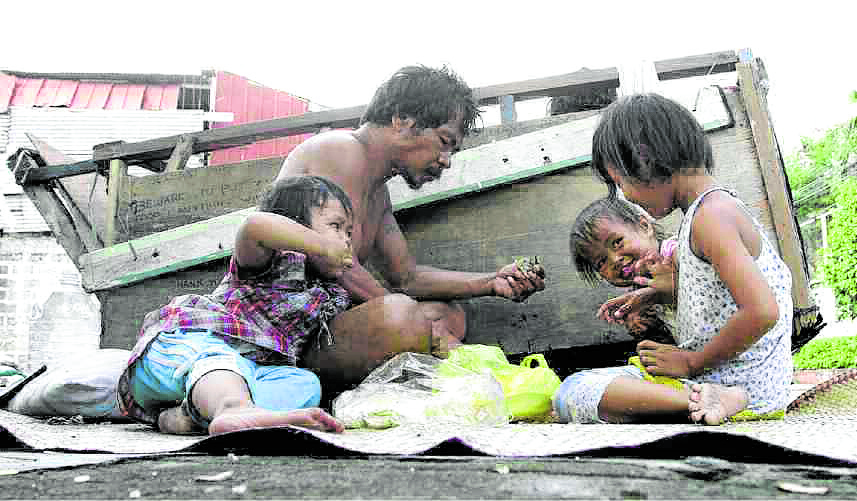
HUNGRY FOR CHANGE Like-minded corporations and institutions have united behind the mission to reduce the number of poor and hungry Filipino families from the current 4.2 million. —CONTRIBUTED PHOTO
There is a problem that persists whether or not we face a crisis such as the COVID-19 pandemic— hunger.
For this reason, business groups on Sept. 16 launched The Hunger Project (THP) to encourage the corporate community to invest in agri-fisheries and help address malnutrition, especially among expectant mothers as well as children up to two years old.
Manuel V. Pangilinan, chair of both THP and the Philippine Business for Social Progress (PBSP), said in the launching ceremony they envisage a country free from hunger.
“‘Feeding our people first’ is the mantra of THP,” Pangilinan said. “We want to see a situation where Filipino families can afford food on the table daily and where they can even grow their food in their communities or even in their homes, where women can access nutritional services in the first 1,000 days of their children’s lives.”
He said that ending hunger required two basic initiatives. On the demand side, it is raising the level of incomes of the poor so that they can afford to buy food. On the supply side, it is improving the factors of food production including the underlying logistics.
Relevant support
“On both sides, I believe that business can play a role by providing the relevant support and by investing in agriculture,” Pangilinan said.
The business leader noted that companies have been reluctant, generally speaking, to invest in agriculture because the industry is regarded to be rather complicated and even political.
“I appeal to the business sector and our partners to invest and engage in inclusive agri-business enterprises, which could be concrete and viable mechanisms for improving the lot of poor families,” Pangilinan said.
“While this project has begun with modest but deliberate steps, we expect to scale into systemic solutions that should eventually put food on the table for every Filipino family,” he added.
THP not only is intended to support programs, projects and organizations that address the urgent need to help the hungry, it also seeks to introduce frameworks and approaches that address systemic and persistent hunger and malnutrition.
Plan of action
Ramon del Rosario Jr., vice chair of both THP and PBSP, said they would work toward reducing the number of poor families plagued by hunger from 4.2 million—citing data from the Social Weather Stations—to as close to zero as possible. “We will begin in locations such as the National Capital Region, Samar, Negros Occidental, Zamboanga del Norte, Sarangani and Basilan,” del Rosario said. “Ultimately, we want to ensure that no mother will endure hunger during her pregnancy, that no child will go to school on an empty stomach, that every family will have food on their table three times a day for their entire lives.”
Through THP, companies will take steps to raise awareness and educate the business community and others on the state of hunger, malnutrition and food security in the Philippines.
They will also support the government’s Plan of Action on Nutrition by adopting pilot sites in partnership with local governments, and pushing for the 2030 Zero Hunger agenda in these locations.
Also engaged in the THP are PLDT, Phinma, Magsaysay group, Sarangani Agricultural Co. Inc., Makati Business Club, Delbros Inc., 7-Eleven, Capital Shares Investment Corp., Accenture, Ayala group, CEL Logistics Inc., Freight Forwarders Inc., Ateneo de Manila University, De La Salle University, Xavier University, Philippine Business for Education, Caritas Manila, Institute of Solidarity in Asia, Peace and Equity Foundation, Sun Life Founation, BrainTrust Inc., Jollibee Group Foundation, HOPE, RestartME, CARD MRI, Zuellig Family Foundation, International Care Ministries, Simag Foundation, Sugar Industry Foundation, and Rock Ed Philippines.